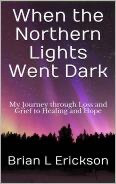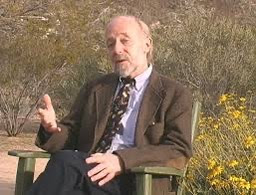How My Theology Has Changed, Thank God
Part II: Lutheran Prairie Pietism: The Positive
Like all theologies, there are aspects that can be very helpful, and other aspects that can be negative and detrimental to one’s spiritual journey. In this post I will reflect on the positive of what I have labeled as my childhood faith: Lutheran Prairie Pietism. First, let’s unpack what I mean by these three terms. And, since as a child I was in the state of what we have called precritical naivete (see last post), I write from the perspective of a child (with an adult voice now), learning and absorbing what they observe as they look up at the adults around them.
We were definitely Lutheran, and proud of it. There might be equals, but no one understood God’s Grace better than we. Of course, as a child I had no idea what this meant, but as I progressed through grade school into junior high--when confirmation classes began—I came to understand that God is indeed a God of love. And that love is “unconditional,” based solely on God’s desire and choice to love and accept us “just as we are,” without any need for us to be good or sinless. While we did not dwell on sin and our unworthiness like many more fundamentalist denominations do, we still knew that we were all “sinful in thought, word and deed,” as our liturgy put it. I still remember Dad coming home from a day at his furniture store, aghast that a farmer who came to town stated to Dad that he had never sinned. Dad, good Lutheran that he was, was just plain astounded that anyone could believe that.
By prairie, I mean that we were rural folk. It didn’t matter whether you lived on a farm or in a small “farming community” of some 700 saints, as I did: everyone knew quite a bit about farming, and even we city folk helped with the harvest, such as hauling grain to the local elevator. When the Bible talks about sheep and goats, or wheat and barley, or weeds in the crops, or the need for rainfall, or the wolf who comes to devour, we were right at home. In a sense, you might also label us as populist, in that we saw ourselves as ordinary people who were often misunderstood by more affluent, “large-city folk.” We just kind of sensed that we were more at home in the Bible than those folks, and that made us feel pretty good about ourselves, even though, believe me, a good Norwegian Lutheran was supposed to think and act anything but proud. A little self-confidence was okay, but don’t let it get out of hand. I played tight end in football, and when you caught a touchdown pass, you slowly walked over to the ref and handed him the ball, making sure you did not make eye contact.
Finally, we were pietists, which Merriam-Webster defines as “a 17th century religious movement originating in Germany in reaction to formalism and intellectualism and stressing Bible study and personal religious experience.” That movement eventually made it to Scandinavia and came with the Norwegian and German immigrants who made up the bulk of those who settled in North Dakota. Bible study was important at every stage of life, from Sunday School through Confirmation through Adult Education. As prairie populists, we were very “low-church,” not getting caught up in fancy liturgical garb, like chasubles, or in many traditional liturgical rituals, like being anointed with ashes in the form of a cross on the forehead on Ash Wednesday, or elaborate chanting during the Holy Communion. We wanted everything simple, with the focus on having a personal relationship with God and Jesus. Not that we were into Billy Graham style “decision” theology or altar calls, but we were encouraged to develop a strong devotional and prayer life as we turned ourselves over in trust to our loving God. I saw Mom do this every morning, as she began her day with her Bible and the Christ in Our Home devotional booklet handed out free in church at the beginning of each month.
This got a further boost when, in the summers after 7th and 8th grade, I spent three weeks at the same camp. Now it was college students sharing their faith journeys and leading the Bible studies. This continued as I worked as a counselor at Red Willow and other camps during my high school summers. I felt such a deep sense of community, bound together by love in the Bible camp community, and my own personal feelings of closeness to God and Jesus continued to grow. I didn’t have a need to question the elements of the faith I was being taught, and now experiencing, because life was good, and everything just seemed to fit together in a positive way.
That began to change in the summer of 1965, my first year as a counselor, when my dad died of cancer. It changed further less than two years later, when my mother also died of cancer. [See Chapters 1 and 2 of my book, When the Northern Lights Went Dark, Amazon].
At first my childhood faith bolstered me. Almost all of the other counselors at camp came to the funerals of my parents, and my home church of North Viking Lutheran surrounded me with love and care. I was encouraged to accept the deaths of my parents as just part of God’s Will, even though I, of course, couldn’t understand why God would want to do this to me. In fact, as I describe in chapters 3 and 4 of the book above, I entered a time of deep prayer and piety as I stayed extremely active in the church, which now included leadership in Luther League, the youth program of our church, at the local, synod land national levels.
This kept me going for a while, but, by the time I entered college, cracks had begun to form in my view of the Lutheran Prairie Pietism in which I had been raised. Borg also describes how this began to happen in his life. If God really was “up there” in “heaven,” Borg writes, “I had taken the first step in removing God from the world. The solution I arrived at indicated that I had come to think of God as a supernatural being ‘out there.’ God became distant and remote, far away and removed from the world, except for special interventions.” [Borg, Meeting Jesus Again, 6] Borg terms this "supernatural theism" [The God We Never Knew, 11]
As I left home to begin college, I found myself in a spiritual quandary. Emotionally, my pietistic attempts to stay close to God were no longer working. It was difficult to feel close to the One who's Will was apparently that my parents should die. Intellectually, like Borg, I increasingly saw God as detached and distant from the world, and thereby unavailable to me in my pain. Worse yet, I wondered if God was perhaps punishing me, although I could not figure out why. Was I missing something? Or was God not who I thought God was?








